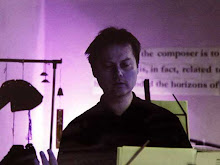Céline Curiol: (...) Do you think writing is a dangerous weapon. Can it kill?
Paul Auster: Writing can certainly be dangerous. Dangerous for the reader – if something is powerful enough to change his view of the world – and dangerous for the writer. Think of how many writers were murdered by Stalin: Osip Mandelstam, Isac Babel, untold others. Think of the fatwa against Salman Rushdie. Think of all the imprisoned writers in the world today. But can writing kill? No, not literally. A book isn't a machine gun or an electric chair. And yet, strange things sometimes happen that make you stop and wonder. The case of the French writer Louis-René des Fôrets, for instance. I first heard about it when I was living in Paris in the early seventies, and it haunted me so much that I wound up incorporating it into one of my novels years later, Oracle Night. Des Fôrets was a promising young writer in the fifties who had published one novel and one collection of stories. Then he wrote a narrative poem in which a child drowns in the sea. Not long after the book was published, his own child drowned. There might not have been any rational link between the imaginary death and the real death, but des Fôrets was so shattered by the experience that he stopped writing for decades. A terrible story. It's not hard to understand how he felt.
– Paul Auster, interviewed by Céline Curiol in 2006, excerpt taken from the interview that precedes the screenplay in The Inner Life of Martin Frost by Paul Auster (Picador/Henry Holt and Company, New York, 2007, page 18).
LINKS:
Paul Auster Bio & Bibliography - Wikipedia
Subscribe to:
Post Comments (Atom)





No comments:
Post a Comment